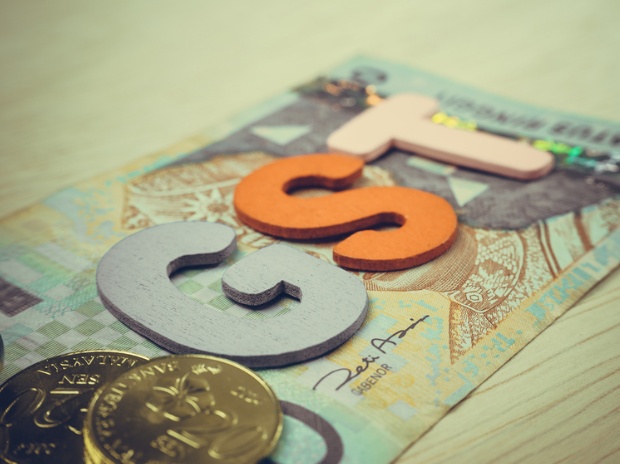GST roll-out from April in jeopardy, dual control plays spoilsport
Business Standard
By Dilasha Seth & Indivjal Dhasmana
December 4, 2016. 10:07 IST

The Goods and Services Tax (GST) Council on Saturday failed, for the third time in a month, to break the deadlock between the Centre and the states on the control of assessees under the new indirect tax regime. Now, it seems impossible that the GST Bills, scheduled to be placed before Parliament during the ongoing winter session, will be passed. This also casts a shadow on the April 1 deadline for rolling out GST.
The council will meet again on December 11 and 12 to break the deadlock. The issue of dual control could now, however, be tricky as some states, West Bengal in particular, fear that the compensation due to them would be huge as a result of demonetisation.
These states were also fearful that gross domestic product (GDP) might contract in the third quarter of the current financial year (2016-17) as a result of the withdrawal of the old series Rs 500 and Rs 1,000 currency notes.
Even if the GST Council does manage to reach a resolution in the next meeting, only three days will be left in the winter session of Parliament. It is unlikely to be passed by the Lok Sabha so quickly.
And, even if the lower House does pass it, the Rajya Sabha, where the Opposition has numerical superiority, can stall it for 14 days if it is a money Bill or longer if it is not. A decision still needs to be taken on whether or not it will be a money or a finance Bill.
“Dual control was discussed today and the discussion will continue in the next meeting. I am keeping my fingers crossed on a resolution,” said Union Finance Minister Arun Jaitley, adding that he would keep trying to meet the April 1, 2017 deadline to roll out the new tax regime. “The window for a roll-out is between April 1 and September 16,” he said.
The Centre and states had reached an understanding in the initial meetings of the council that the states will have sole control over assessees till Rs 1.5 crore turnover. Over this limit, both the Centre and states will have power in case of goods. In case of services, the Centre will have sole power over assessees till the time state officials have enough skills to tax services.
However, this understanding was broken later after some states argued that they also impose tax on certain services, such as entertainment tax, and have powers over assessees in services as well. The division of administrative powers between the Centre and the states has been hanging in balance since then.
The Centre, on the other hand, is now pressing for cross empowerment for all assesses or those who would be scrutinised. Jaitley said the Council has received a proposal on a hybrid division of the GST administration.
He also said the dual control issue was intertwined with the Integrated GST (IGST). As such, IGST Bill will also come up at the next meetings, along with compensation Bill. “(I) hope to see a forward movement on the GST legislation in the next round of meeting,” he said.
Jaitley said nine chapters of both the state GST (SGST) Bill and Central GST (CGST) Bill were fully discussed, clause by clause, on Saturday. “A majority were (approved) through a consensus.”
The finance minister said he would like all issues to be resolved before implementation of the GST, as he wants to establish a good principle of deliberative democracy. He also took up the issue of impact of demonetisation on the revenues of states even as it does not technically fall under its purview.
“States wanted a discussion on the fiscal situation after demonetisation. Although the issue is outside the purview of the GST Council, I had a discussion with the state FMs after the council meeting. They asked for an increase in FRBM (fiscal responsibility and Budget management Act) limit and flexibility in ways and means with respect to revenue fall,” Jaitley said.
West Bengal Finance Minister Amit Mitra and Kerala Finance Minister Thomas Isaac flagged the issue from states sides.
Mitra told reporters later that GDP growth might be negative in the third quarter of the current financial year (2016-17), affecting tax collections of states and the Centre.
“How do we meet our social programmes?” he said.
Mitra said compensation in the future was based on a single issue of GST, but there is now a dual problem of demonetisation and GST. “Compensation may be huge. The Centre’s taxes will fall, then the whole system will destabilise.”
Isaac described the Centre’s decision to demonetise a “national calamity” which had sparked a turmoil.
The crisis following the cash deficit has percolated to even the organised sector and will result national production loss of Rs 2.5 lakh crore, he told reporters.
“There is going to be a severe downturn. Even if you take 2 per cent (decline in GDP as suggested by former prime minister Manmohan Singh)... it means something like loss of production of Rs 2.5 lakh crore...,” Isaac said, adding that the Centre’s move is now impacting almost all sectors of the economy.
He dubbed it as a failed exercise, saying Prime Minister Narendra Modi is shifting the goalpost to cashless economy.
Isaac also countered Jaitley’s claims of about Rs 3 lakh crore expected gains from the exercise, reeling off data that he said suggest about Rs 11.5 lakh crore of the invalid currency have already returned to the banking system.
“Even if you give a very generous estimate of Rs 1 lakh crore (of gains)... you have sacrificed Rs 2.5 lakh crore of national product for unearthing Rs 1 lakh crore of black money. This is an enterprise that has totally failed,” he said.